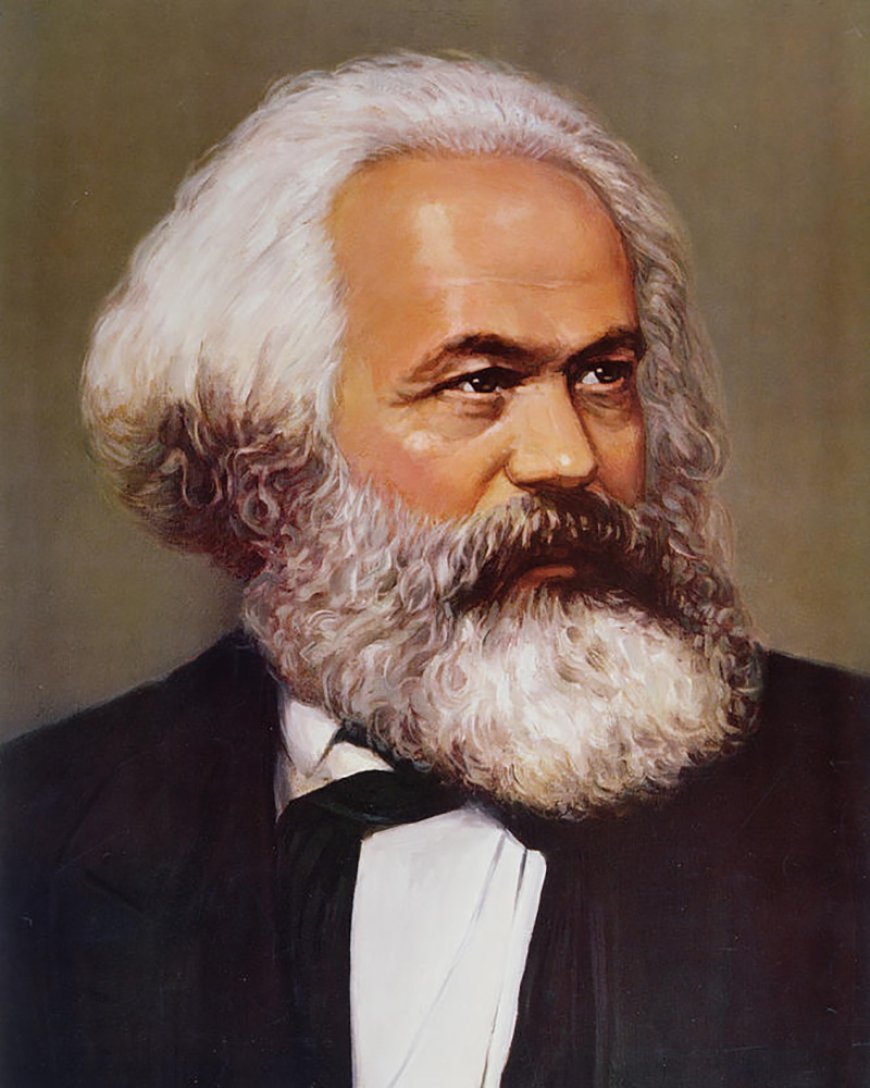Karl Marx on Class Struggle: The Engine of Historical Change
Explore Karl Marx’s class struggle theory—its meaning, history, relevance, and impact on modern society, from capitalism to revolution.

Karl Marx is regarded as one of the most influential thinkers of modern times. His theories on class struggle have reshaped political ideologies, economic policies, and social theories across the globe. Central to Marxs philosophy is the belief that history is a continuous struggle between economic classes. This concept, deeply embedded in Marxist theory, explains the rise and fall of different systems of powerfrom feudalism to capitalismand predicts the eventual rise of a classless, communist society.
In this article, well explore the origins, development, and impact of Karl Marxs theory of class struggle, its relevance today, and why it remains a vital concept for students and scholars of political science, economics, and sociology.
? What Is Class Struggle?
In simple terms, class struggle refers to the conflict of interests between different economic and social classes. For Marx, every major era in human history was shaped by such struggles. In The Communist Manifesto (1848), co-authored with Friedrich Engels, Marx famously wrote:
The history of all hitherto existing society is the history of class struggles.
Marx argued that society is always divided into two main classes:
-
The ruling class, which controls the means of production (land, factories, capital).
-
The working class, which has no ownership and must sell its labor to survive.
This creates a fundamental conflict, as the ruling class seeks to maximize profit, often by exploiting labor, while the working class fights for fair wages, rights, and representation.
? Historical Materialism: The Backbone of Class Struggle
Historical materialism is a framework Marx developed to explain how societies change over time. It emphasizes the role of material (economic) conditions over ideas in shaping human history.
According to this theory, history progresses through a dialectical processa series of contradictions and resolutionsled by economic forces and class relations. Each economic system (e.g., slavery, feudalism, capitalism) creates internal tensions that eventually lead to its breakdown and replacement.
| Stage | Dominant Classes | Conflict |
|---|---|---|
| Ancient Society | Slave owners vs. slaves | Oppression & revolt |
| Feudalism | Landlords vs. peasants | Serfdom vs. liberation |
| Capitalism | Bourgeoisie vs. proletariat | Wage slavery vs. revolution |
| Socialism (future) | Dictatorship of the proletariat | Transition phase to classless society |
| Communism (ideal) | No classes | Equality, shared ownership |
?? Capitalism and the Bourgeois-Proletarian Conflict
In capitalist society, the two major classes are:
-
Bourgeoisie: The capitalist class that owns industries, resources, and capital.
-
Proletariat: The working class that owns nothing but their labor.
The bourgeoisie extracts surplus value from the proletariatmeaning workers are paid less than the value they produce. This results in exploitation, which Marx argued was the cornerstone of capitalism.
Over time, as inequality grows and economic crises repeat, Marx predicted the proletariat would rise, overthrow the bourgeoisie, and seize control of production, leading to socialism and eventually communism.
? Key Concepts in Marxs Class Theory
Lets break down a few essential ideas linked to class struggle:
1. Alienation
Workers become alienated from their labor, the product, and even themselves under capitalism. They do not control what they produce or how they produce it.
2. Exploitation
The bourgeoisie exploits the proletariat by paying wages lower than the value of goods/services created.
3. False Consciousness
Marx believed capitalism masks exploitation through ideology, causing workers to accept their conditions and not recognize the true source of their oppression.
4. Revolutionary Consciousness
When workers unite and become aware of their oppression, they achieve class consciousnessthe key to overthrowing the system.
? Is Class Struggle Still Relevant Today?
Absolutely.
Although the economic structure of many nations has evolved, income inequality, worker exploitation, and wealth concentration remain widespread. The top 1% of the global population continues to control more wealth than the rest combined.
Movements such as:
-
Occupy Wall Street
-
Fight for $15
-
Labor union revivals
-
Socialist resurgence in youth politics
All echo Marxs concerns about capitalism's contradictions.
Even in advanced economies, debates on minimum wage, gig economy exploitation, healthcare access, and unemployment highlight ongoing class tensions.
?? Impact of Marxs Class Struggle Theory
Karl Marxs theory changed the world. It influenced:
-
The Russian Revolution (1917)
-
The formation of socialist and communist governments in the 20th century
-
Anti-colonial and workers movements across Asia, Africa, and Latin America
In academics, Marxism remains a cornerstone in disciplines like:
-
Political science
-
Sociology
-
History
-
Economics
-
Philosophy
?? Criticism of Marxs Theory
While influential, Marxs theory isnt without its critics.
-
Overemphasis on economics Critics argue Marx underestimated the roles of culture, identity, and politics.
-
Class reductionism Modern scholars say race, gender, and caste also shape inequality.
-
Failed implementations Authoritarian regimes that used Marxs name often deviated from his core ideas, leading to dictatorships rather than worker-led democracies.
? Final Thoughts
Karl Marx on class struggle is more than a historical theoryits a lens through which we can analyze modern inequality, labor relations, and systemic injustice. As long as economic classes exist and exploitation persists, Marxs analysis remains relevant.
Whether you're preparing for CUET UG, UGC NET, or simply trying to understand power dynamics in society, Marxs class struggle provides an essential framework.
? Want More?
? Read detailed study notes and historical analysis here:
? Karl Marx On Class Struggle




































